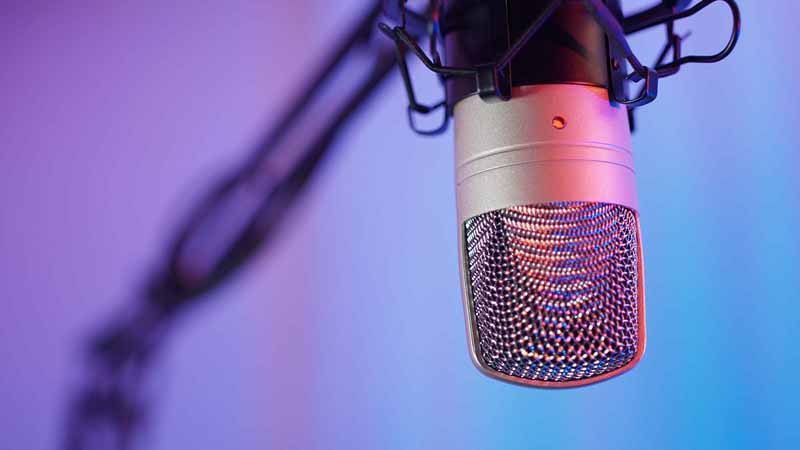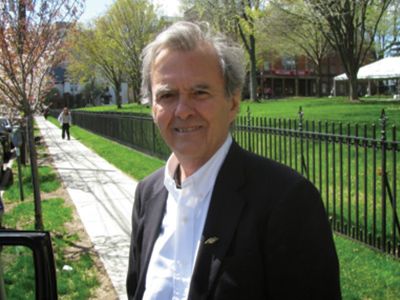The Podcast Explosion: Talk up or Stay Silent
Suddenly, the question for just about every startup is, “What’s the name of your podcast?” From janitorial companies to playwrights, a podcast has emerged as a must-have for small business success — maybe even survival — and pandemic realities have, if anything, accelerated and deepened that trend.

Numbers don’t lie; Podcastinghost.org says there are 1.5 million podcasts as of November 2020 with a collective 34 million episodes. That’s a doubling from the 750,000 podcasts on the Internet in 2019. And best estimates are that we may well see another doubling into 2021.
The pandemic is why. As face-to-face contact diminishes — or it proceeds somewhat awkwardly with masks and social distancing — smart entrepreneurs, startups very much included, are on the hunt for other ways to contact and get in front of customers, prospects, and potential partners and employees. A podcast is an answer because it’s a tool for presenting the opinions, ideas, and personalities of its hosts and sponsors.
The stats say that half of us are self-described podcast fans, and 16 million of us say we are “avid” podcast listeners. Listeners skew younger (48% are 12 to 34), but 20% of the 55+ crowd listen, too.
Some shows are breakout hits — podcast distributor Spotify recently paid $100 million to lure Joe Rogan (host of the Joe Rogan Experience) to its platform, and Rogan is believed to get over 200 million downloads monthly.
However, 50% of podcasts get under 136 downloads in the first 30 days after release. The reality is that this is a media niche dominated by shows with small audiences — that’s 95% of the shows, guessed Madison Catania, co-founder of Wildcast, a new site that aims to provide a venue for would-be podcast guests to connect with podcast hosts.
If it’s the right listeners, that’s what matters.
Where do we listen? Unsurprisingly, 64% of listening occurs while driving — but we also listen at home. In most respects, a podcast is essentially a radio show, and wherever people would consume radio, they might listen to a podcast instead.
A Design for a Winning Podcast
Sam Aquillano, founder and executive director of The Design Museum Everywhere, a nomadic museum with operations in Boston, San Francisco, and Portland, Oregon, Aquillano started his podcast in April just as the pandemic hit the nation hard. He did it because COVID-19 had put an end to The Design Museum Everywhere’s marketing plan, which had been to put on literally hundreds of live events around the country.
Aquillano said he had been considering the idea of a podcast for some months. However, as much of the country slid into social distancing and went into lockdown, where such events were prohibited, Aquillano knew the time had come to debut the podcast to keep the company’s name and ideas in front of its audience.
The time had also come to keep The Design Museum Everywhere’s cash register ringing. Cashflow hinged on fees for live conferences, museum memberships, and subscriptions to Design Museum Magazine. The podcast has become the engine for fueling that marketing, with advertisements for virtual events, magazine subscriptions, and memberships blended into the content. It generally features heady, brisk discussions of cutting-edge issues in the design world, from the role of minority architects to designing the multi-faceted fitness experience. “The podcast has been a great audience builder,” said Aquillano, who typically co-hosts the episode with rotating guest co-hosts. “We have been selling memberships, subscriptions, and promoting our virtual events.”
How Long Is Long?
A question common to podcast newbies is how long it should be. The right answer is as long as it needs to be and no longer.
A factoid, according to podcasting marketing expert Joe Donovan, is that the average length is 43 minutes. But the most popular podcasts are 53 minutes long.
Joe Rogan, the reigning podcast king, sometimes publishes shows as long as three hours. Tim Ferris, a highly successful podcaster, files shows that usually run around 90 minutes. One Year No Beer, a thriving alcohol cessation startup, puts out podcasts that typically are around an hour.
There is no rule about length. That’s the simple truth.
Keys to Success in Podcasting
Pat Flynn, host of the Smart Passive Income podcast and the AskPat podcast, said some secrets of successful podcasting; the first is, “Be sure to choose a topic you can commit to for a long time. It’s easy to get hyped up over the prospect of podcasting, but you have to plan long-term or you’re going to be doomed.” It takes time to build an audience, especially when it’s a podcast from a startup with scant marketing and promotional dollars. Some good advice is to settle in and be prepared to go at it for at least six months.
Flynn added that consistency in publishing matters. “You should publish your podcast consistently. It doesn't matter if your podcast comes out each week, every other week, or once a day. As long as you can get into a rhythm and groove so that your audience knows what to expect, then it's okay. Try your best to stick to a schedule for a while until making changes, or else you might confuse and frustrate your audience. When I started the Smart Passive Income Podcast, I only had the capacity for once every other week. I was blogging and publishing three times a week. Then, once I saw how amazing the results were for my podcast, I switched to recording and publishing weekly, and then got obsessed and created even more podcasts. Find out what works for you and run with it.”
Dollars and Cents of Podcasting
The discouraging news about podcasts? Most experts agree that the majority of podcasters quit, often within a few months of starting. Reasons are varied, but costs are not among them. Podcast hosts — where a podcast is published — range from free such as Anchor to under $20 monthly such as the popular hosts Buzzsprout and Blubrry. Editing software needed to trim and polish a podcast before publishing ranges from free (Audacity and GarageBand) to Adobe Audition ($31.49 per month on a monthly plan).
It’s also free to get listed in the main podcast distribution sites such as Apple Podcasts, Spotify, and Stitcher.
Equipment costs are minimal. Most podcasters invest in a decent microphone — in the $100 range is good enough for many — and Zoom (which has free plans) has emerged as the podcast recording medium of choice.
What about selling paid advertising? Dream on. A few thousand of the very most listened to podcasts sell ads, but for most podcasters, the benefits are in the exposure for the entrepreneurial host and an expanded audience that will produce more revenues.
Even so, it’s not money or lack of that prompt many to give up on a podcast. The real reason podcasters quit is that it’s a lot of work. Aquillano estimates his podcast takes ten hours weekly, and that is for many jobs in addition to simply hosting the podcast. A podcast needs to be edited, guests need to be lined up for future podcasts, podcasts need to be promoted on social media, and a smart strategy for gaining more listeners is to become a guest on other, related podcasts — thus, Catania’s Wildcast. The listeners to any podcast establish themselves as consumers of the medium, and if they hear you and like what you say on another podcast, they will track down your own.
Get a Guest Gig
How to succeed as a podcast guest? Danielle Capers, a program executive at Voxus PR in Washington State, said she often gets her clients guest slots on podcasts. She shared this recipe: “Just like any other media opportunity, you’ll want to cater your pitch specifically to the podcast you are pitching. It’s best to share a tailored bio including responsibilities in your current role, relevant past roles or speaking engagements, and projects or other achievements that this niche audience will care about. You’ll also want to list off a few topics you’re willing to discuss on the podcast.”
And if turned down, remember that there are another 1.4999 million podcasts to pursue.
Know What the Message Is
Every successful podcast starts with a message: what’s the point of it?
Know that, and the next step is to hit record and start talking.
The key is to get recording now. Every day more podcasts start. “It’s an industry where experience matters. Start even if you are not 100% ready,” said Catania. Podcasters get better with each show, so the path starts by doing the first one.
About the Author

Robert McGarvey, a veteran journalist who has long covered startups and small businesses, created and hosts the CU2.0 Podcast for credit union and fintech executives which is at 120 episodes and counting.
Startup Resources
- Learn more about Startups
- Visit the TRUiC Business Name Generator
- Check out the TRUiC Logo Maker
- Read our Business Formation Services Review
- Find Startup Ideas
- Explore Business Resources
Form Your Startup
Ready to formally establish your startup? Click below to read our review of the best business formation services!
Best Business Formation Services